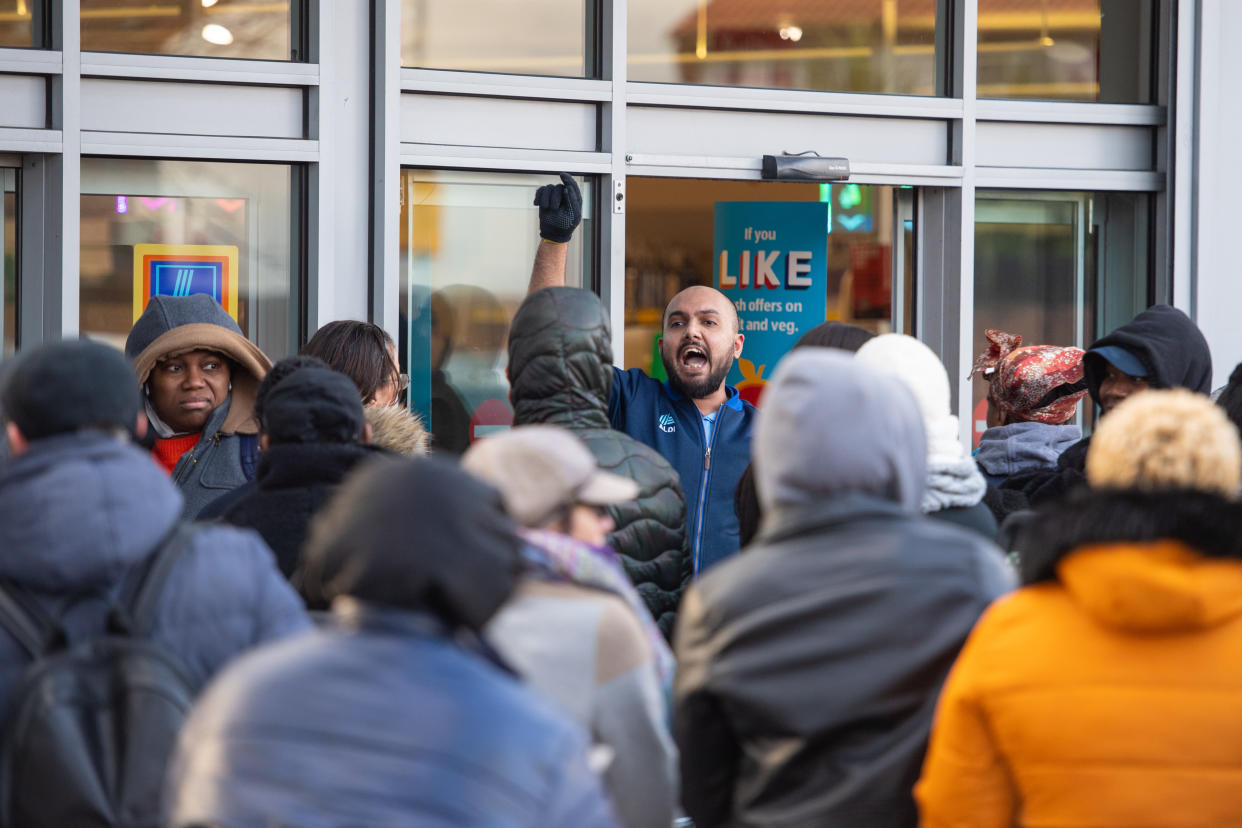Majority not stockpiling but buying ‘a little extra, a little bit more often’

Extra demand in supermarkets is being driven by people buying a few extra items and making more trips, rather than shoppers grabbing large amounts of the same product in one go, data suggests.
Sales of toilet tissue rose by 60% year-on-year for the week ending March 8 2020, while dry pasta sales were up 55% and baked beans by 48%, according to Kantar.
But the company said evidence suggests that shortages are not being caused by "stockpiling", but by people picking up a few extra items more often.
Analysing the shopping habits of more than 100,000 UK consumers, Kantar found that a minority of people are engaging in what might traditionally be thought of as stockpiling.
For example, 6% of liquid soap buyers have taken home extraordinary quantities, and only 3% of dry pasta shoppers.
The average spend per supermarket trip rose by 16% in the week ending March 17 to £22.13 compared to the same week a month ago.

As consumers reallocated spend to groceries, supermarkets took 51% of all retail sales – an increase of seven percentage points on mid-February, Kantar said.
Customers are also choosing to shop more often, exacerbating the impact of slightly larger baskets.
An additional 15 million supermarket visits were made in the week ending March 17, compared to the week ending February 17.
Fraser McKevitt, head of retail and consumer insight at Kantar, said: "Most of us have seen images circulating online of people bulk-buying products like toilet rolls and pasta, but our data gives us a different, if counter-intuitive, diagnosis of what's happening.
"Ultimately we need to look at the empirical evidence and it tells us that temporary shortages are being caused by people adding just a few extra items and shopping more often – behaviour that consumers wouldn't necessarily think of as stockpiling.
"People will also be eating in more as a result of social distancing and increased working from home.
"Consumers spend more than £4 billion each month on food and drink out of the home, a significant proportion of which will now be channelled through the supermarkets.
"It's not just how much people are buying but what. We're seeing customers shop beyond their normal, regular product choice, putting pressure on supplies of items that aren't usually bought as often.
"Purchasing typically made over a couple of weeks or longer is being concentrated into a few days.
"Retailers have adapted to make sure everyone can access the products they need, with many restricting the number of any one good each customer can buy.
"However, the cumulative impact of a little extra, a little bit more often means these measures may have limited effect in the short term."



